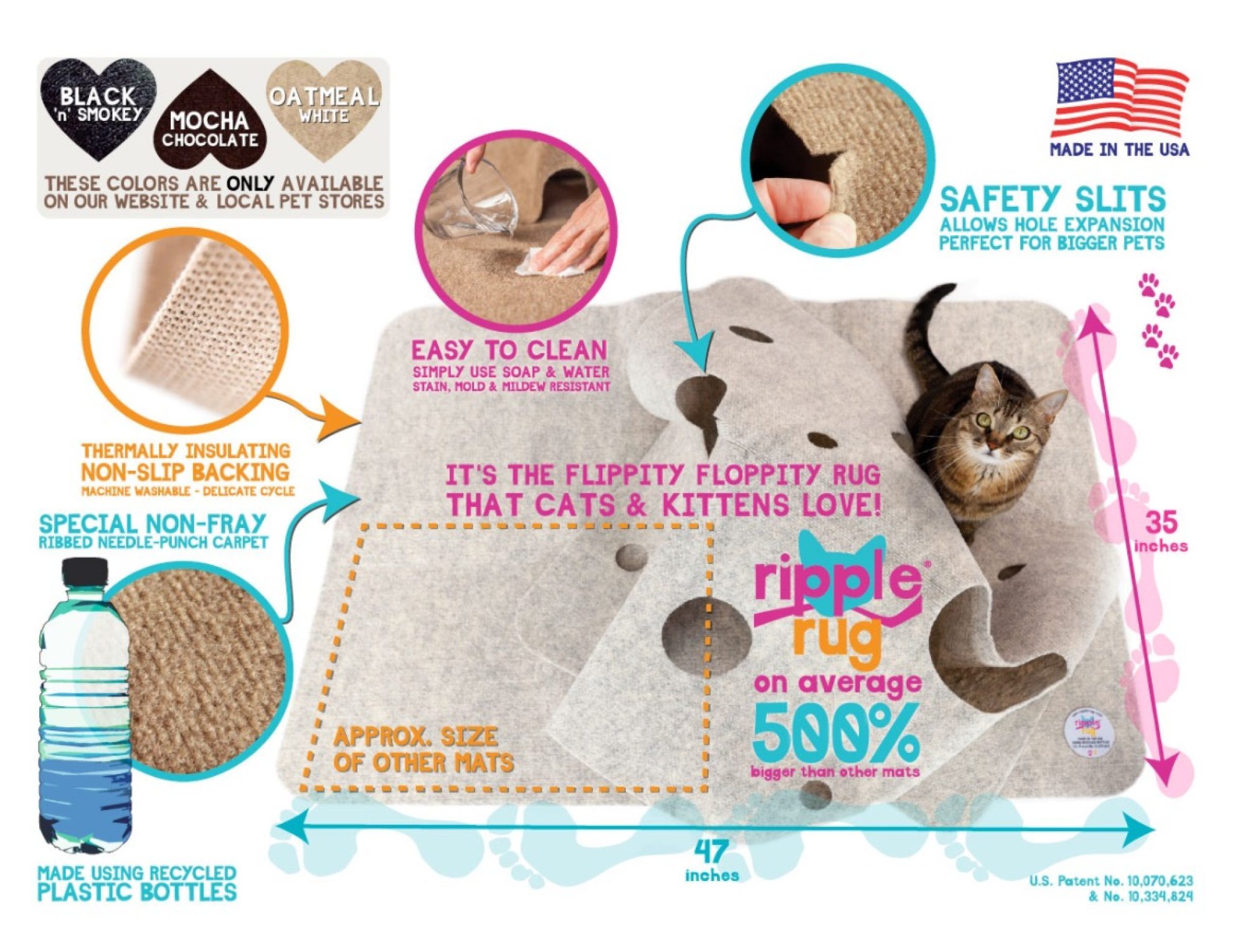
Amazon protects brands like Apple and Adidas against the sale of fake products but allows Chinese knock-off merchants to siphon off sales of small producers
- Many small companies rely on Amazon’s algorithms to spot fakes before they appear – but the automated process can be dodged by dedicated scammers
- A small business selling cat products has been constantly battling knock-offs made in China, while major brands don’t face competition from counterfeits
There are two classes of merchant on Amazon.com: those who get special protection from counterfeiters and those who don’t.
The first category includes sellers of some big-name brands, such as Adidas, Apple and even Amazon itself. They benefit from digital fortifications that prevent unauthorised sellers from listing certain products for sale.
Many lesser-known brands belong to the second group and have no such shield. A popular cat toy called the Ripple Rug, invented by Fred Ruckel, is one of those brands. A few months ago, knock-off merchants based in China began selling versions of his product, siphoning off tens of thousands of US dollars in sales.
Amazon’s marketplace has long been plagued with fakes, a scourge that has concerned bosses at household names like Nike. While most items can be uploaded freely to the site, by 2016 Amazon began requiring would-be sellers of a select group of products to get permission to list them, a system that has been called “brand gating”.

Of the millions of products sold on Amazon, marketing advisers say only a small proportion, perhaps thousands, are afforded this kind of protection and the programme is not publicised.
Most merchants, many of them small businesses, rely on Amazon’s algorithms to ferret out fakes before they appear – an automated process that can be dodged by dedicated scammers.
Amazon’s new Astro home robot costs US$1,000 and follows you around
Amazon says it works hard to police its marketplace, including requiring increasingly detailed verification of seller accounts, but US lawmakers are now considering new regulations for online marketplaces.
Ruckel started his company, SnugglyCat, in 2015 and began shipping orders of the Ripple Rug from his home in New York state. The product is essentially sheets of carpet that can that can be made into a cat gym held together by custom Velcro strips. Ruckel is the sole distributor and he doesn’t sell his cat mat to wholesalers or any other traders.
In August, Ruckel received an email from a long-time customer letting him know that sellers were listing their own “Ripple Rugs” and violating Ruckel’s copyright. At least four different entities, all based in China, began selling their own versions of Ruckel’s Ripple Rug: Wyatt Smoothly, Senkmlemt-NA, Le Tao Tao Cm, and Fuxinda Business. Some fought Ruckel’s efforts to shut them down, citing a US design patent.

Selling the product for a lower price, they snagged prime placement in the “buy box”: the first product customers see and are then most likely to buy. Amazon, which groups identical products together on a single page, had inadvertently given the counterfeiters prime placement.
Amazon support teams removed the first few listings Ruckel flagged. But new sellers popped up. At one point, Ruckel says Amazon suggested he work it out with an apparent counterfeiter.
Growing desperate and dissatisfied with Amazon’s response, Ruckel superimposed an SOS on top of the cat mat on his own listing, and warned shoppers to email him before buying.
In SnugglyCat’s case, Amazon says there was a mismatch between the brand’s name on its listing and how it appeared on Brand Registry, a tool that helps sellers control the text of listings and gets expedited support if something goes wrong. The error “resulted in our not being able to protect their brand as effectively as we would have liked”, a spokesman says.
If we detect suspicious or abusive behaviour, we investigate quickly and make improvements to better protect the brand
Ruckel’s problem is largely a by-product of Amazon’s determination to offer as large a selection as possible. The company has deliberately made it easy for anyone to list a product on the site, employing self-service tools, as more listings mean more satisfied customers.
Sellers require Amazon’s approval to hang out a shingle for some product categories, such as jewellery and DVDs. But it’s open season for others. If someone claims they have a product to sell, Amazon’s presumption is that it’s genuine, people who advise sellers say.
There are the exceptions – the brands afforded extra protection from counterfeiters. In one high-profile example, Apple and Amazon struck a deal a few years ago to expand the selection of iPhones and other products on the site and Amazon prohibited sellers from listing used or refurbished devices unless they had Apple’s blessing.

Frustrated with Amazon’s response, Ruckel last month spoke to staffers from a US House of Representatives committee working on a bill designed to force companies like Amazon to take more responsibility for counterfeit products sold on their platforms.
An Amazon spokesman says the company works to prevent counterfeits being sold on the site. “If we detect suspicious or abusive behaviour, we investigate quickly and make improvements to better protect the brand.”

